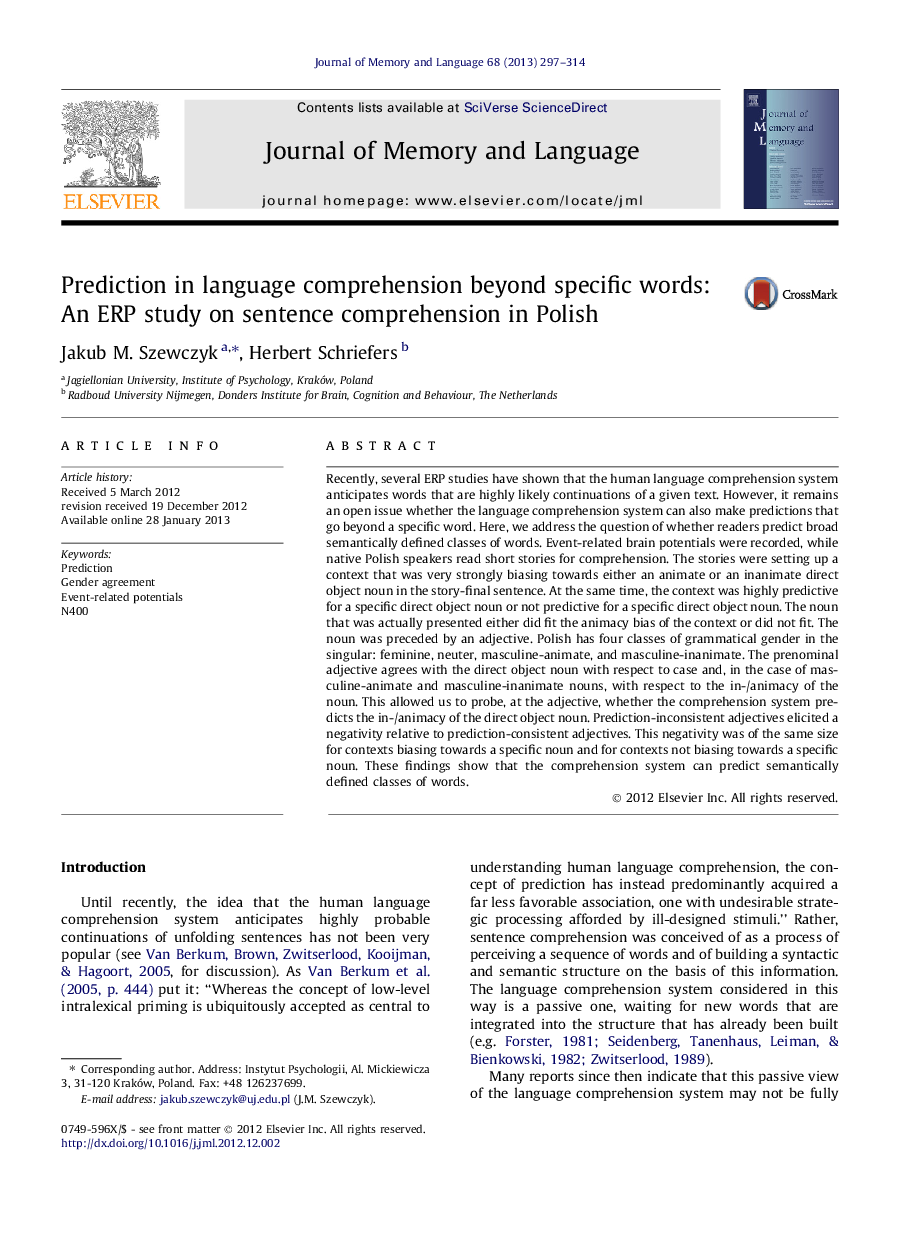| Article ID | Journal | Published Year | Pages | File Type |
|---|---|---|---|---|
| 931885 | Journal of Memory and Language | 2013 | 18 Pages |
Recently, several ERP studies have shown that the human language comprehension system anticipates words that are highly likely continuations of a given text. However, it remains an open issue whether the language comprehension system can also make predictions that go beyond a specific word. Here, we address the question of whether readers predict broad semantically defined classes of words. Event-related brain potentials were recorded, while native Polish speakers read short stories for comprehension. The stories were setting up a context that was very strongly biasing towards either an animate or an inanimate direct object noun in the story-final sentence. At the same time, the context was highly predictive for a specific direct object noun or not predictive for a specific direct object noun. The noun that was actually presented either did fit the animacy bias of the context or did not fit. The noun was preceded by an adjective. Polish has four classes of grammatical gender in the singular: feminine, neuter, masculine-animate, and masculine-inanimate. The prenominal adjective agrees with the direct object noun with respect to case and, in the case of masculine-animate and masculine-inanimate nouns, with respect to the in-/animacy of the noun. This allowed us to probe, at the adjective, whether the comprehension system predicts the in-/animacy of the direct object noun. Prediction-inconsistent adjectives elicited a negativity relative to prediction-consistent adjectives. This negativity was of the same size for contexts biasing towards a specific noun and for contexts not biasing towards a specific noun. These findings show that the comprehension system can predict semantically defined classes of words.
► It is known that, at least in specified circumstances, the language comprehension system can predict specific words. ► We exploit a property of the Polish grammatical gender system (animate vs. inanimate genders). ► We show that language comprehension system can also predict broad semantically defined classes of words. ► This was indexed by a negativity, for prediction inconsistent inflections relative to consistent ones.
